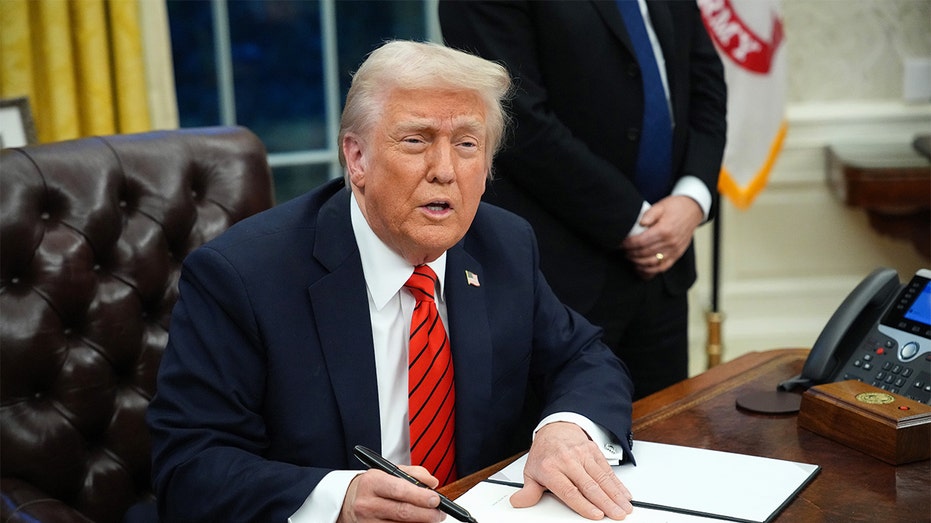
Trump Praises U.S. Forces for Airstrike Targeting Al-Qaeda Affiliate in Syria
In a recent statement, President Donald Trump lauded U.S. military forces for effectively executing an airstrike that targeted a senior figure from Hurras al-Din, an Al-Qaeda affiliate, in Syria. The operation highlights the continuous U.S. commitment to counterterrorism efforts in a volatile region plagued by extremist groups.
Details of the Airstrike
Trump took to his social media platform, Truth Social, to express his gratitude towards the military personnel involved in the operation. “U.S. forces conducted a precision airstrike against a member of al-Qaeda in Syria this weekend,” he announced. “The terrorist leader was collaborating with al-Qaeda operatives across the region.”
Following the successful strike, the President extended his congratulations to General Michael Kurilla, the Commander of U.S. Central Command (CENTCOM), stating: “Congratulations to CENTCOM Commander Gen. Michael Kurilla and the U.S. warfighters who delivered justice to another jihadi threatening America, our allies, and our partners.”
Official Confirmation from CENTCOM
On Saturday, U.S. Central Command confirmed the airstrike’s execution in northwest Syria, disclosing that the operation successfully neutralized a high-ranking official responsible for finance and logistics within Hurras al-Din.
A press release from CENTCOM elaborated on the strike’s intent, which is part of broader efforts—with the collaboration of regional partners—to “disrupt and degrade terrorist organizations seeking to plan, organize, and carry out attacks against civilians and military personnel from the U.S., our allies, and partners throughout the region and beyond.”
A Renewed Commitment to Counterterrorism
General Michael Erik Kurilla reinforced the U.S. commitment to counterterrorism in response to these ongoing threats. “We will continue to relentlessly pursue terrorists to defend our homeland, as well as U.S., allied, and partner personnel in the region,” he declared, emphasizing the urgency of maintaining pressure on terrorist entities operating in the area.
Understanding Hurras al-Din
Hurras al-Din, translated as “Guardians of Religion,” emerged in 2018 after the Nusrah Front, an offshoot of Al-Qaeda, split. The group primarily operates within Syria’s Idlib Province and is estimated to have a membership of around 2,500, according to the National Counterterrorism Center (NCTC).
The NCTC has characterized Hurras al-Din as a group advocating attacks against Western entities and Israel, aiming to expel foreign influence from Muslim territories. Their overarching goal is to establish a new caliphate spanning the Levant and broader Middle East.
Challenges and Threats Ahead
Despite suffering substantial losses in leadership ranks since 2019, the National Counterterrorism Center cautions that Hurras al-Din retains links with seasoned Al-Qaeda operatives. These connections potentially enable the group to pose a persistent threat, extending beyond the borders of Syria.
This airstrike serves as a critical reminder of the ongoing challenges faced by U.S. forces and their allies in the region. With persistent threats from groups like Hurras al-Din, the mission to counter terrorism remains a top priority for the United States.
The Broader Implications
As the U.S. continues its military operations against groups like Hurras al-Din, the implications of these actions reverberate globally. The airstrike not only demonstrates U.S. resolve in combating terrorism but also underscores the importance of international cooperation in addressing security challenges.
The recent developments in Syria reiterate the complexity of the region’s security landscape, where various factions vie for power amidst a backdrop of geopolitical tensions and humanitarian crises.
Conclusion
President Trump’s praise for U.S. forces following the successful strike against Hurras al-Din reinforces a message of strength and determination in the fight against terrorism. As the U.S. military continues to adapt its strategies to effectively counter these threats, the global community watches closely, aware that the battle against extremist ideologies is ongoing and multifaceted.
Moving forward, the commitment to security and stability in the region will rely heavily on sustained efforts, coordination with allies, and a comprehensive understanding of the threats posed by organizations like Hurras al-Din. The path ahead remains fraught with challenges, but recent military actions signal a persistent U.S. resolve in safeguarding its interests and protecting its partners.


















